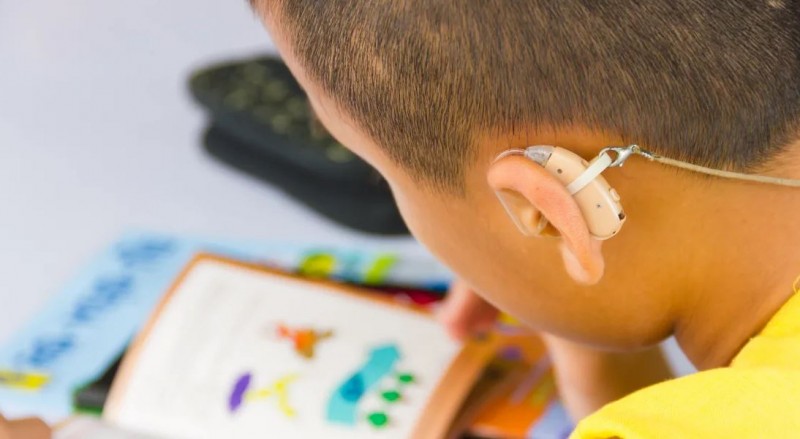In today's fast-paced world, headphones have become an integral part of our lives. Whether we're commuting, working out, or just relaxing, we often rely on these devices to enhance our auditory experience. However, prolonged and improper headphone usage can lead to hearing loss over time. In this guide, we'll explore effective ways to take care of your ears and avoid hearing loss while enjoying your favorite tunes or podcasts.
1. Choose the Right Headphones
Selecting the appropriate headphones is the first step in preventing hearing loss:
1.1 Over-Ear vs. In-Ear Headphones
- Over-ear headphones are generally safer as they keep the sound further from your eardrums.
- In-ear headphones can be riskier as they place the sound source closer to your ears, increasing the potential for damage.
1.2 Noise-Canceling Technology
- Invest in noise-canceling headphones to reduce the need for high volume levels in noisy environments.
2. Set Volume Limits
One of the most critical factors in preventing hearing loss is controlling the volume:
2.1 The 60/60 Rule
- Follow the 60/60 rule: Listen at a maximum of 60% volume for no more than 60 minutes at a time.
2.2 Use Volume Limiting Features
- Many devices have built-in volume limiters; activate them to ensure safe listening.
3. Take Regular Breaks
Avoid continuous, long listening sessions to give your ears a rest:
3.1 The 20-20-20 Rule
- Every 20 minutes, take a 20-second break from headphones and focus on something 20 feet away to reduce ear fatigue.
4. Maintain Earphone Hygiene
Keeping your headphones clean can help prevent ear infections:
4.1 Clean Ear Tips Regularly
- If you use in-ear headphones, clean the ear tips with a mild disinfectant to prevent the buildup of bacteria.
5. Be Mindful of Noise Levels
Consider your environment when using headphones:
5.1 Avoid Using Headphones in Noisy Areas
- When surrounded by loud sounds, you tend to increase the volume to compensate.
6. Use Noise-Isolating Headphones
Noise-isolating headphones reduce the need for high volumes in noisy places:
6.1 Types of Noise-Isolating Headphones
- Over-ear headphones with good noise isolation can help block external sounds, allowing you to listen at lower volumes.
7. Audiologist Check-ups
Regular visits to an audiologist can help detect early signs of hearing loss:
7.1 Hearing Tests
- Get periodic hearing tests to monitor your auditory health.
8. Consider Open-Back Headphones
Open-back headphones allow some sound to escape, reducing pressure on your eardrums:
8.1 Benefits of Open-Back Headphones
- They provide a more natural listening experience while minimizing the risk of hearing damage.
9. Limit Usage Before Bed
Avoid falling asleep with headphones in your ears:
9.1 Hearing Damage During Sleep
- Prolonged exposure to audio during sleep can lead to hearing problems.
10. Educate Yourself
Stay informed about the risks associated with loud music and headphone usage:
10.1 Share Information
- Educate friends and family about responsible headphone use to promote awareness.
11. Use Earplugs at Loud Events
When attending concerts or loud events, consider wearing earplugs:
11.1 Protecting Your Hearing
- Earplugs can significantly reduce the risk of noise-induced hearing damage.
12. Invest in High-Quality Headphones
Quality headphones often provide better sound at lower volumes:
12.1 Sound Clarity
- High-quality headphones deliver clear audio, reducing the need for excessive volume.
13. Follow the 90/90 Rule for Kids
Children are more susceptible to hearing damage; ensure they follow the 90/90 rule:
13.1 The 90/90 Rule for Kids
- Kids should listen at no more than 90 decibels for no longer than 90 minutes a day.
14. Be Aware of Symptoms
Recognize the signs of hearing damage:
14.1 Signs of Hearing Damage
- If you experience ringing in the ears or muffled sounds, consult a healthcare professional.
15. Mind Your Ear Health
Overall ear health is essential for preventing hearing loss:
15.1 Ear Protection
- Protect your ears from extreme cold, wind, and moisture to maintain their health.
16. Be a Role Model
Set a good example for others:
16.1 Leading by Example
- Demonstrate responsible headphone use to encourage those around you to do the same.
17. Stay Informed About Safe Listening Habits
Continuously educate yourself about the latest research and guidelines:
17.1 Stay Updated
- Keep up with developments in hearing protection and safe listening practices.
18. Limit Smartphone Use
Reduce the overall time spent with headphones by engaging in other activities:
18.1 Smartphone-Free Activities
- Opt for activities that don't require headphone use to give your ears a break.
19. Consider Noise-Canceling Earplugs
Noise-canceling earplugs can protect your ears in various noisy environments:
19.1 Versatile Protection
- Use noise-canceling earplugs for concerts, sporting events, or when traveling.
20. Encourage Responsible Listening
Spread awareness about responsible listening habits:
20.1 Share Information
- Use your platform to share tips and information on safe headphone use.
By following these guidelines, you can enjoy your favorite audio content while safeguarding your precious hearing. Remember, responsible listening today ensures a lifetime of auditory pleasure.
50 Magnets Removed from Child's Intestine: A Parent's Nightmare
Avantika Malik's Cryptic Messages Amidst Imran Khan's Mental Health Revelation
The 7 Habits of Highly Successful People
